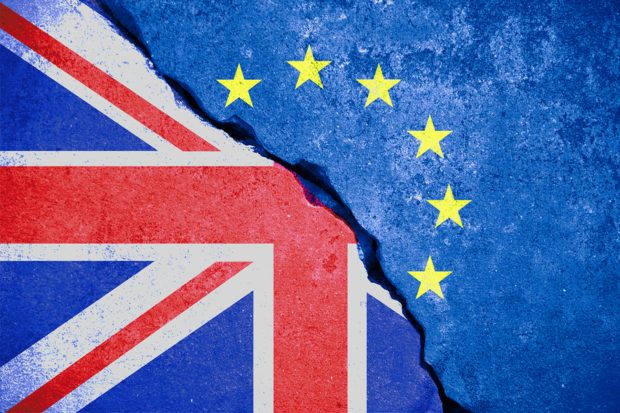A stand-off between Britain and the European Union over the future of London’s vast financial services industry is shaping up as one of the key Brexit battlegrounds of this year.
The EU said on Wednesday that there will be no special deal for one of Britain’s most important industries, delivering a blow to hopes of a trade agreement that maintains current flows of staff and services.
But British government officials believe that the EU will change its mind, partly because European countries risk damaging their own economies if they are cut off from its markets.
The financial services sector, which accounts for about 12 percent of Britain’s economic output and pays more tax than any other industry, potentially has a lot to lose from the end of unfettered access to the EU market of 440 million people.
Below are some scenarios for financial services access to the EU after Brexit:
Bespoke Deal
Like the British government, the City of London wants a free-trade deal with the EU, granting access to each other’s financial markets based on broad acceptance of each other’s rules. This would allow both sides some leeway to set their own rules to achieve those goals.
A trade deal in financial services on this scale has never been done before and could take years to agree.
The EU has said Britain cannot continue to have free access to the single market because it has ruled out continuing to meet its membership conditions — chief among them the free movement of workers from other EU countries to Britain.
European Economic Area
If Britain were to join the European Economic Area, dubbed the Norway option, it would have access to the EU single market in return for accepting free movement of EU citizens and contributing to the bloc’s budget, but with no say over the EU rules it must implement.
Joining Norway, Iceland and Liechtenstein in the EEA is not seen as a viable option for Britain, given that the government has ruled out free movement of EU citizens, continued contributions to the EU budget and acceptance of EU rules it might not agree with.
Canada
Canada took several years to negotiate its “CETA” free trade deal with the EU and it only has a minimal section on financial services. If a Canadian financial firm wants to do business in the EU it must set up a presence inside the bloc and comply with EU regulations.
The chapter on financial services says the EU and Canada must treat each other’s sectors equally, but a “prudential carve-out” allows each side to protect consumers and financial services providers while maintaining financial stability.
But the EU is under pressure not to offer Britain more favorable terms than it already has with countries such as Canada. This is because, under the terms of their deals with the EU, their trade relationships will have to be upgraded in line with any terms offered to Britain.
Equivalence
The EU allows access to foreign financial firms if it deems their domestic rules to be “equivalent” or as robust as the bloc’s own regulation. This designation is solely in the gift of the EU and can be withdrawn at a month’s notice.
The City of London financial district says equivalence as applied by the EU is unworkable over the long term for a financial center of Britain’s size because that would make it a “rule taker” of EU regulation.
WTO
Many banks are working on a worst-case scenario of having to fall back on World Trade Organization (WTO) rules for trade with the EU. This would rely on a system of tariffs that do not adequately cover financial services.
Under a so-called hard Brexit, Britain would have to set tariffs on its goods and services, which could take years to complete. The General Agreement on Trade in Services, or GATS, is the WTO agreement governing trade in services.
That means Britain’s right to export financial services into the EU could be downgraded to match countries such as India or China to keep within WTO rules. Similar restrictions would arise on EU financial services sold to Britain.





















 AI Got Beat by Traditional Models in Forecasting NYC’s Blizzard
AI Got Beat by Traditional Models in Forecasting NYC’s Blizzard  The Future of HR Is AI
The Future of HR Is AI  State Farm Inked $1.5B Underwriting Profit for 2025; HO Loss Persists
State Farm Inked $1.5B Underwriting Profit for 2025; HO Loss Persists  Telematics and Trust: How Usage-Based Insurance Is Transforming Auto Coverage
Telematics and Trust: How Usage-Based Insurance Is Transforming Auto Coverage 

